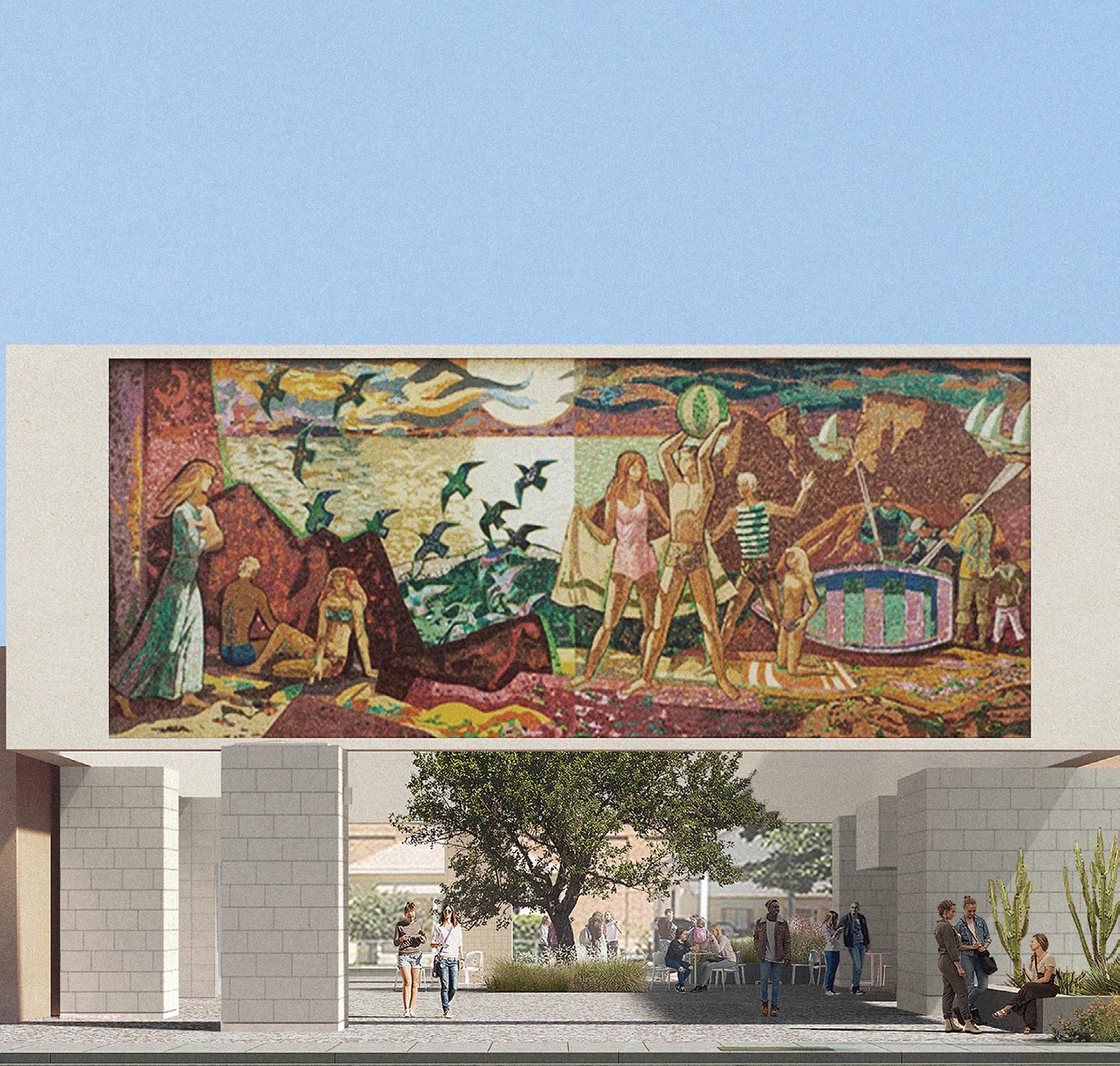MESSAGE FROM THE PRESIDENT
CREATING CONNECTIONS THAT CROSS BOUNDARIES As a child, I was fascinated by space exploration. I grew up in Italy, so I would navigate the awkward time difference to watch thunderous launches being beamed by satellite from a faraway place called Cape Canaveral. I was taken with the pure adventure of it all. But as I matured, my fascination expanded to include the boundary-crossing teamwork as well. How many mathematicians, engineers, scientists and countless other contributors must it take to pull off such a feat? At Chapman University, our collective fascination with discovery is similarly propulsive as we find innumerable ways to cross boundaries and pursue new possibilities. Examples abound, including a project led by Chapman Professor of Art Justin Walsh, who is making space a place to dig into the material culture of the cosmos. Professor Walsh and a crossdisciplinary team are applying the tools and principles of archaeology, sociology, anthropology and more to gather insights from inside the International Space Station. In so doing, Walsh and his collaborators not only widen our horizons but they also strengthen our connections, which now stretch around the globe as well as 250 nautical miles into space. We at Chapman have long understood that our academic disciplines aren’t silos of information. We know that information is interconnected and that most breakthrough research crosses disciplinary boundaries. In this issue of Chapman Magazine, we explore the ways in which our researchers, students and alumni are crossing boundaries in the classroom and beyond through academic collaboration, community engagement, industry partnerships and, yes, childlike fascination.
positive change in their war-torn homeland. But regime change turned them into refugees, and now, thanks to a generous donor and many others in the Chapman Family, those alumni are getting a fresh start as visiting scholars in the Wilkinson College of Art, Humanities, and Social Sciences. An ocean away, Professor of Health Economics and Anthropology Hillard Kaplan ventures into the Bolivian Amazon to study the low rates of dementia among the Indigenous Tsimane villagers and explore biomarkers and lifestyle factors that may offer solutions to the growing prevalence of Alzheimer’s disease in the Western world. Closer to home, faculty from the Crean College of Health and Behavioral Sciences, School of Pharmacy and others collaborate with researchers from Children’s Hospital Orange County (CHOC). On Page 16, you’ll read about how faculty, students and alumni leverage connections of institutional culture to serve both communities and improve the lives of CHOC patients. As the scope and depth of our research and partnerships continue to grow and evolve, so too does Chapman’s campus. The visionary leadership of Mark and Jan Hilbert will enable the Hilbert Museum of California Art to nearly triple its space (see story on Page 28), allowing not just for enhanced exhibition space but also a gateway into the City of Orange. When visitors step off the train at the Orange Metrolink station, they will immediately see a pathway leading to the museum, declaring Orange a city of art. Chapman’s 160-year journey as a university has only just begun. We emerged after two complicated years of the pandemic stronger than ever before, as evidenced by the strength of our financial outlook, the growth of our campus, our exceptional students and the innovation of our partnerships and research. Much of this is due to the steadfast support of our community of alumni, friends, neighbors and supporters. The interconnectedness of the Chapman Family is the true strength of our university and a testament to the promise of the continued momentum of our legacy together. With gratitude,
The story of the space archaeology project begins on Page 22, illuminating the first-ever extraterrestrial archaeological project in history. But it’s just one illustration of initiatives that reach new heights. On Page 36, you’ll learn about how a group of Fowler School of Law alumni have traversed one of the world’s most treacherous national boundaries in order to access a Chapman education and career. Five legal scholars from Afghanistan – four of them women – sought to apply their Chapman graduate studies to create
2
CHAPMAN UNIVERSITY MAGAZINE
Daniele C. Struppa President, Chapman University















